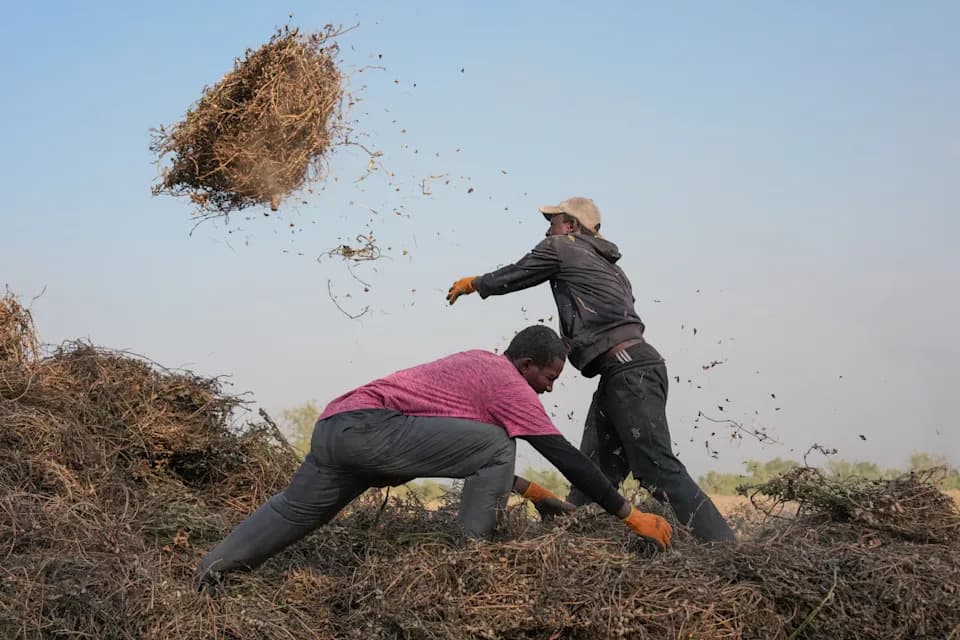Improved, climate‑resilient seeds for amaranth, okra and tomato have been widely adopted in Ghana's Upper East Region after successful 2024 trials. CSIR‑CRI distributed the seed as part of the Technologies for African Agricultural Transformation program. Farmers reported roughly double the yields — about 20 tons per hectare versus around 10 tons for traditional varieties — offering a practical way to strengthen food security amid rising heat, flooding and threats to cocoa production.
Ghana Farmers Rush to Adopt Climate‑Resilient Seeds as Yields Nearly Double

New climate‑resilient varieties of amaranth, okra and tomato are being rapidly adopted by farmers in Ghana's Upper East Region after successful trials in 2024. The seed distribution, led by the Council for Scientific and Industrial Research–Crops Research Institute (CSIR‑CRI), is part of the continentwide Technologies for African Agricultural Transformation (TAAT) program, now in its second phase.
Results from the field
Farmers who planted the improved seed lines reported substantially higher yields and strong market acceptance. According to CSIR‑CRI researchers, the improved varieties can deliver roughly 20 tons per hectare, compared with about 10 tons or less from traditional strains, prompting many growers to return for larger supplies.
"We came here last year (2024) and did some demonstrations to the farmers. We are back again to distribute the seeds to them, and as you can see, they are rushing for the seeds," said Dr. Michael Kwabena Osei, a lead scientist at CSIR‑CRI.
Why this matters
Ghana — like many countries across Africa — faces growing climate risks that threaten food security. Projections suggest the nation could see more than 140 days of extreme heat per year by 2060. Flooding and rising sea levels are already damaging homes and crops in low‑lying and coastal areas, and critical export crops such as cocoa are vulnerable because they thrive only within a narrow climatic band.
Improved seed varieties are one practical, near‑term tool to help farmers adapt: they can increase productivity on existing farmland, reduce crop losses during adverse weather, and strengthen household incomes. These gains complement longer‑term strategies such as landscape restoration, irrigation investment and diversified cropping systems.
Practical next steps for growers and consumers
Farmers interested in the new varieties are being encouraged to take part in demonstration plots and extension programs to learn optimal planting times and crop management. Consumers and urban households can also contribute to resilience by choosing more sustainable diets and growing some vegetables at home — actions that often yield cost, nutrition and taste benefits.
The rapid take‑up in the Upper East Region underscores how targeted innovation and local testing can accelerate adoption. As more resilient seed lines are scaled up, they could play a significant role in bolstering food security across the region.
Help us improve.


































